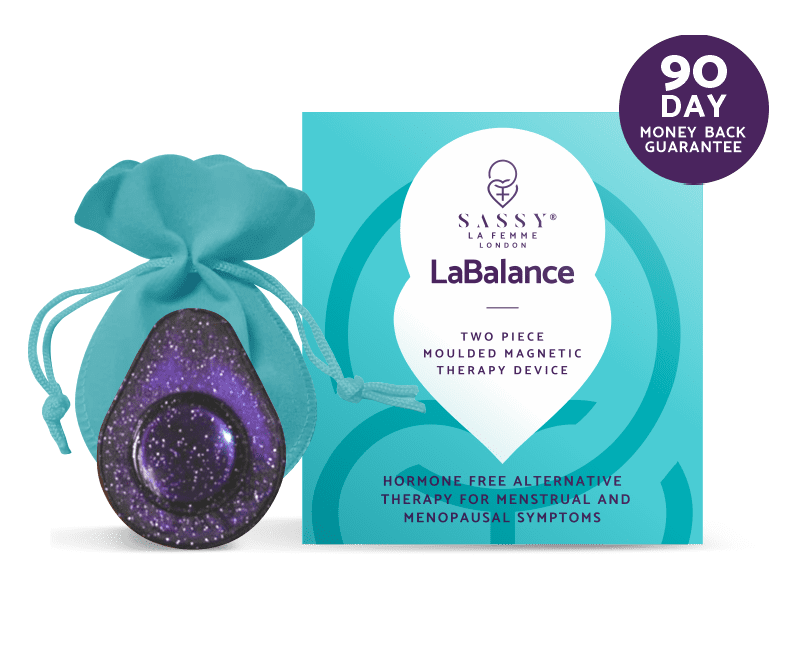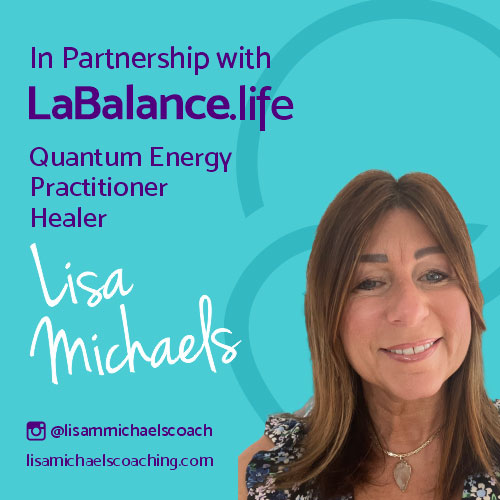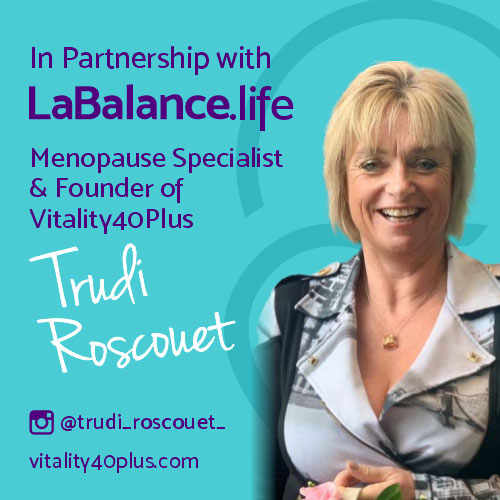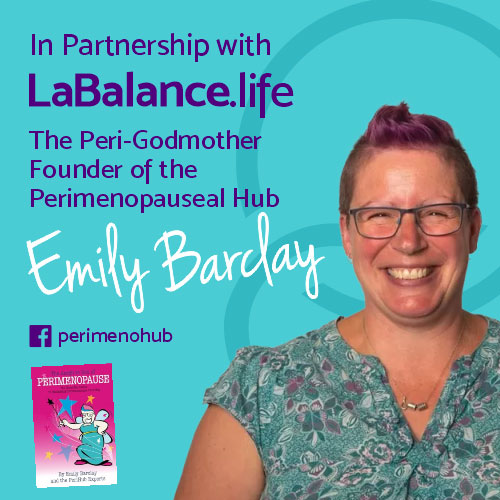Perimenopause
It’s a wonderful natural alternative option and
many women will notice a difference within
the first 21 days.

Buy Perimenopausal Period Pain Relief Devices Online in the UK
If you’re looking online for the leading perimenopause and period pain relief devices in the UK, then look no further than LaBalance. Our period pain magnets have helped countless women across the UK at every stage of life. From period pain relief to a better night’s sleep, discover the myriad benefits of LaBalance today!
Perimenopause means “around menopause”. It is the time which starts when your ovaries reduce production of the female hormone oestrogen and the time before your periods stop.
The hormonal changes which occur before menopause begins, start much earlier. These perimenopausal symptoms can often begin in the early to mid-40s, but in some cases occurring as early as the mid to late 30s.
Irregular
Menstruation
You might notice you’re just a little grouchier,
your periods aren’t quite as regular, or, they’re much heavier. However, if you’re having very heavy bleeding there can be other things that affect your menstrual cycle, so it’s worth speaking to your GP if you are concerned about any changes to your periods.
Changes
of Mood
But because perimenopausal symptoms such as these often begin years before your periods become
majorly affected, it’s all too easy to overlook or dismiss them as a result of a busy
modern lifestyle.

Hot
Flushes
Perimenopausal changes may be felt all over the body and can continue for anything from two to ten years.
Sleep
Disorders
Eventually, more obvious physical signs such as hot flushes, night sweats and/
or palpitations, thinning hair, brain fog, memory lapses, loss of skin tone may be present. And increasing gaps between, and eventual absence of,
periods for a full 12 months will make it clear that you’ve transitioned into full menopause.

Hysterectomy & Early Menopause
A hysterectomy (removal of all or part of the womb)
should not cause early menopause because your
ovaries are still regulating hormones and still releasing eggs. Your periods will stop once the womb has been removed, but this does not mean you will go through
menopause straight away. It can be more difficult to
tell when you eventually do start menopause, since
menstruation will no longer be an indication.
Typically you will go through menopause around the mid-late 40’s or early 50’s. However,
some women who have had a hysterectomy do
experience premature menopause by 1-2 years.
Safe and Effective Alternative Perimenopause Pain Relief Devices
Not only can magnet therapy help relieve PMS and menopause symptoms, but LaBalance devices are a safe form of therapy with no side effects. Discover the wonderful benefits of this easy-to-use solution that’s helped women across the UK to lead their best lives.
This holistic form of treatment benefits women in all kinds of ways, and it has the potential to significantly alleviate perimenopause period pain, as well as other symptoms, such as hot flushes, fatigue, and more.
If you have any questions or queries about our period pain relief devices, please don’t hesitate to get in touch online with the team at LaBalance today. We’re here to help, wherever you are in the UK.



